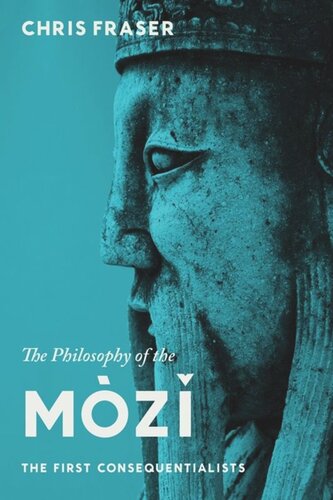

Most ebook files are in PDF format, so you can easily read them using various software such as Foxit Reader or directly on the Google Chrome browser.
Some ebook files are released by publishers in other formats such as .awz, .mobi, .epub, .fb2, etc. You may need to install specific software to read these formats on mobile/PC, such as Calibre.
Please read the tutorial at this link: https://ebookbell.com/faq
We offer FREE conversion to the popular formats you request; however, this may take some time. Therefore, right after payment, please email us, and we will try to provide the service as quickly as possible.
For some exceptional file formats or broken links (if any), please refrain from opening any disputes. Instead, email us first, and we will try to assist within a maximum of 6 hours.
EbookBell Team

4.3
98 reviewsMohism was an ancient Chinese philosophical movement founded in the fifth century B.C.E. by the charismatic artisan Mòzi, or "Master Mo." The Mohists advanced a consequentialist ethics that anticipated Western utilitarianism by more than two thousand years and developed fascinating logical, epistemological, and political theories that set the terms of philosophical debate in China for generations. They were the earliest thinkers to outline a just war doctrine and to explain the origin of government from a state of nature. Their epistemology and psychology provide intriguing alternatives to contemporary Western mentalism. The Philosophy of the Mòzi is an extensive study of Mohism that immerses readers in the Mohist worldview, situates the movement's rise and decline within Chinese history, and highlights its relevance to modern thought.
Mohism was an ancient Chinese philosophical movement founded in the fifth century BCE by the charismatic artisan Mòzi, or "Master Mo." Its practitioners advanced a consequentialist ethics, along with fascinating political, logical, and epistemological theories, that set the terms of philosophical argumentation and reflection in China for generations to come. Mohism faded away in the imperial era, leaving the impression that it was not as vital as other Chinese philosophical traditions, yet a complete understanding of Confucianism or Daoism is impossible without appreciating the seminal contribution of Mohist thought.
The Philosophy of the Mòzi is an extensive study of Mohism, situating the movement's rise and decline within Chinese history. The book also emphasizes Mohism's relevance to modern systems of thought. Mohism anticipated Western utilitarianism by more than two thousand years. Its political theory is the earliest to outline a just war doctrine and locate the origins of government in a state of nature. Its epistemology, logic, and psychology provide compelling alternatives to contemporary Western mentalism. More than a straightforward account of Mohist principles and practice, this volume immerses readers in the Mohist mindset and clarifies its underpinning of Chinese philosophical discourse.